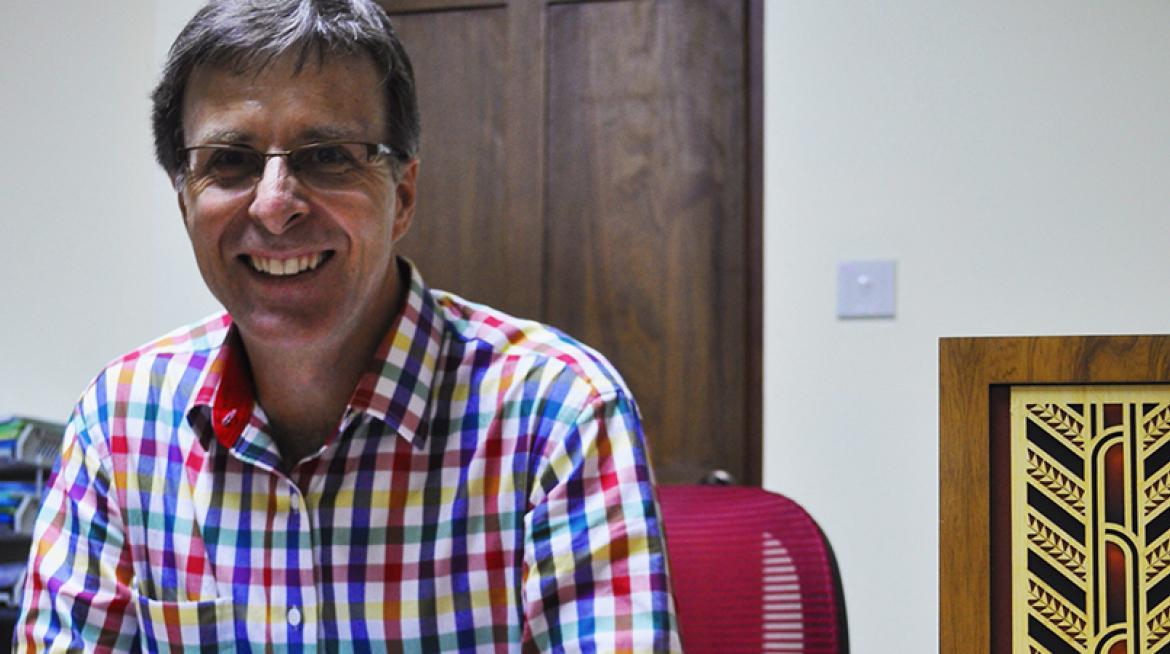
As LIFT welcomes applications for its new Delta 3 Programme, LIFT’s Lead Technical Officer Steve Dowall explains aspects of the Call for Proposals (Cfp) for Delta 3. Links to important information related to the CfP can be found at the bottom of the interview.
Could you summarise the main points of the Call for Proposal please?
SD: Delta 3 builds on LIFT's experience over the past 4 years with the Delta 1 and Delta 2 programmes. It is configured around five components:
• To strengthen smallholder farmers in the rice value chain, particularly to help farmers gain increased income from the sale of their rice.
• To build access to non-farm economic opportunities for landless and poor households. The landless in the Delta constitute in excess of 60%- this crucially needs to be addressed.
• To address problems of nutrition, especially the high incidence of stunting in the region, through direct nutrition interventions on feeding and hygiene practices.
• To strengthen resilience, by supporting local communities in building and maintaining their social protection systems, e.g. by providing cash transfers to vulnerable households, and support through resilience mapping/village action plans/disaster risk reduction plans.
• To generate key learning and evidence to influence ongoing development. We want LIFT to influence policy to have a lasting impact on poverty reduction and to stimulate rural economic growth.
The CfP for the Delta 3 programme is looking for proposals that address these components.
Proposals must be submitted by the 27th of April, giving applicants nearly seven weeks to prepare. We are happy to receive written enquiries, responses of which will be available to everyone on our website by April 9th. Please also refer to the Questions and Answers from the Delta 3 Workshop held in Yangon on February 24th.
The annexes to the CfP includes guidance on drafting proposals. I suggest applicants follow this closely. Usefully, it also includes the appraisal criteria for proposals.
Are there any changes to LIFT's previous expectations for proposals?
SD: Yes. Over the last couple of months LIFT has been revising its M&E and learning framework. This means there are some new requirements for proposals under this CfP.
While in the past IPs were reporting against the LIFT logframe, LIFT now requests the following from organisations submitting a proposal:
(1) a project Theory of Change
(2) a project Evaluation and Learning Plan
(3) a project Measurement Plan
You can find all components described in the guidelines published on the website and you can also find templates and examples there. We decided to change our approach since we want to put more M&E effort on the specific outcomes, indicators and questions that are relevant to the individual projects, we want to know what is working, what is not working and why; and we want to be able to use the generated knowledge to inform policy.
Who will implement the programme?
SD: LIFT partners include international and local organisations, research organisations, academic organisations and other UN bodies. We hope to see an increase in the number of local NGOs involved, and will be establishing a small grants fund to help smaller local NGO’s participate. LIFT has a number of partners working on the Delta and so we hope many of them, and other prospective new partners, will submit their ideas and proposals under this Call.
How would you expect potential partners to address cross cutting issues such as nutrition, water and sanitation, and gender, in their proposals?
SD: As is very clear in the LIFT Strategy, these issues are central to what we do. We want to see interventions addressing nutrition, and water and sanitation needs. These could include direct support to households with children under the age of two and hygiene promotion.
All projects should be nutrition sensitive and so it will be important for proposals to make it clear how. While some will provide direct nutrition interventions, the ones that don't will still need to be clear on how they impact on local nutrition needs.
The LIFT Gender Strategy provides a clear outline of LIFT’s approach to addressing gender. Gender needs to be specifically addressed in all proposals, with details on the gender context of the project and the key gender issues addressed. We also expect all information provided to be disaggregated by gender.
How does LIFT hope to effect lasting change with the Delta 3 programme?
SD: It should be noted that LIFT has only three and a half years (till the end of December 2018) to execute the Delta 3 projects. We have much to achieve in a relatively short time.
Nevertheless, LIFT impact can be taken to scale if we ensure that the Delta 3 learning is translated into helping build a policy environment that better supports smallholders and the rural poor on the Delta pursuing their own development aspirations. A policy environment conducive to developing the rice value chain and stimulating rural economic growth and employment, will create longer lasting impact from a relatively time limited LIFT investment.
For more information on the LIFT’s Delta 3 CfP, please see: http://www.lift-fund.org/news/lift-launches-call-proposals-delta-3-programme
The following documents are important and will be useful to applicants in making their proposals:
- The Delta 3 Programme - Call For Proposals (CfP), available in English and in Myanmar language
- The UNOPS' Notice for Calls for Proposal.
- The Delta 3 Programme Framework.
- The guidelines and templates on the M&E/Learning framework, which apply for all of LIFT's new programmes.
- The Questions and Answers from the Delta 3 Workshop on February 24th.


